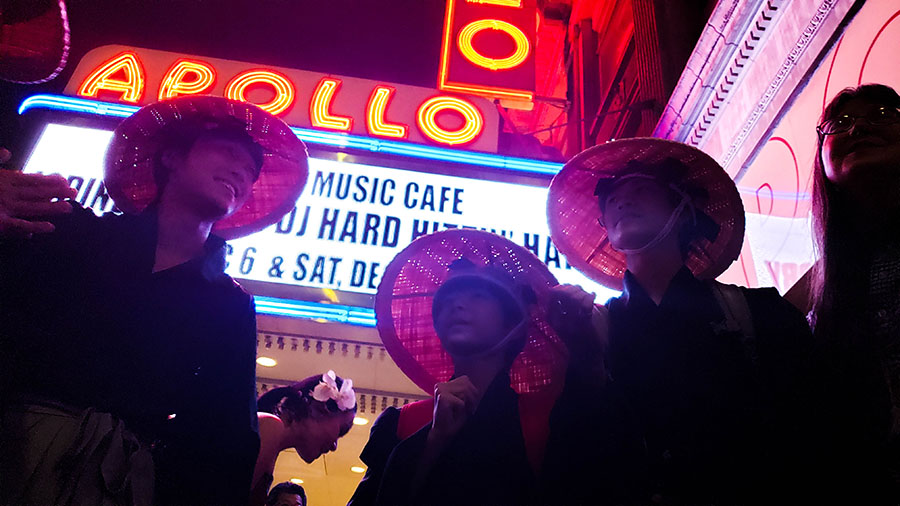
Article and photos by Apolinar Islas
A river of people advanced and stopped, step by step, as they moved along the sidewalk of West 125th Street toward the white and red neon lights of the marquee that marks the vaunted Apollo Theater. Holding out their cellphones, the concert-goers allowed ushers to scan their electronic tickets, which read “Apollo Amateur Night Super Top Dog. November 27, 2019. 7:30 PM,” before they rushed through the chandelier-adorned lobby and took to their velvet-covered seats in the theater. The neoclassical house was warmly shadowed with incandescent lights. As people settled in, DJ Jess entertained the crowd and comedian Capone, the show’s presenter, fired up the audience with jokes.
It was the start of the grand finale of the 2019 season of The Apollo’s famous Amateur Night, where aspiring singers, musicians and comedians perform in the hope of convincing the audience to vote them winners of the Super Top Dog cash prizes — $5,000 in the minors’ category and $20,000 for adult performers. But more than winning the contest, the contestants were seeking to become the next Apollo legend, a title coveted over the 85-year-old history of Apollo’s Amateur Night – a Harlem cultural celebration. Among past winners were Ella Fitzgerald, Billie Holiday and the Jackson 5. In 1983, the Apollo Theater was designated a city and state landmark, showcasing American rhythms – from jazz to blues to mambo to salsa and even Asian music. International stars, like Cuban singer Celia Cruz and Akiko Wada, one of the biggest singers of Japan, performed in concert here in years past.
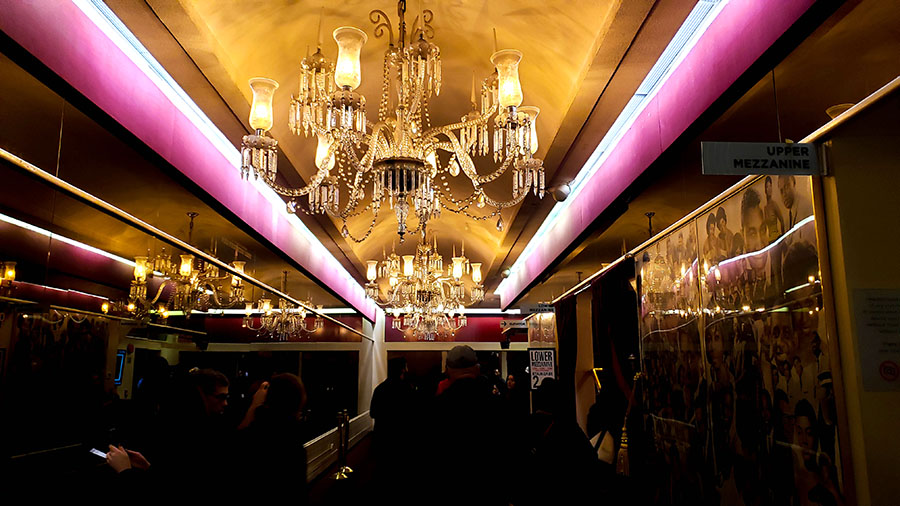
A Tradition of Music and Culture
During the Great Migration of the early 20th Century, many Southern blacks found new homes in Harlem, imbuing the neighborhood with a flourishing arts scene that sparked the Harlem Renaissance between 1919 and the early 1930s. Harlem became a place where jazz, blues, comedians, poets, painters and philosophers thrived. The Apollo, a Harlem music mecca, was constructed in 1914; designed by architect George Keister, it was originally only open to white audiences. Its first name was Hurtig and Simons New Burlesque Theater, changing to the 125th Street Apollo Theatre in 1934 when it began opening its doors to black audiences as well. Since then, this cultural institution became known as a stage where stars were born, embodying the spirit of Harlem through its professional and amateur performers. Singer James Brown performed more than 200 times at the Apollo, and Fitzgerald was the first Apollo Amateur Night female winner (taking home the $25 prize).
The contest, originally called Harlem Amateur Hour, is the legacy of Ralph Cooper, an African-American actor and producer who launched the show in 1933 at the Lafayette Theater. In 1934, Cooper renamed it Amateur Night at the Apollo and hosted the event for decades. The show was an Apollo mainstay, interrupted only for several years in the late 1970s and early 1980s when the theater was shuttered before new ownership revived it.
An International Stage for All
Anyone who wants to rock Apollo’s stage is welcome to do so. “Amateur Night contestants are black, white, Latino, Asian, Indian. It doesn’t matter your nationality,” said Billy Mitchell, 70, and the Apollo’s history tours director. “It’s all about the talent.” That talent includes Sung Lee, 30, who in 2014 won the $10, 000 Amateur Night prize for his beatbox performance, mimicking a mix of genres including hip hop, electronic music, house and dubstep sounds with his mouth. “Music, beatboxing and looping is exactly what I’m meant to be doing in this life,” Lee, a Harlem resident, posted on his Facebook page. Last November, Lee was back at the Apollo pursuing his second Super Top Dog title against some of the most talented performers from around the nation and the world. Would he do it again?
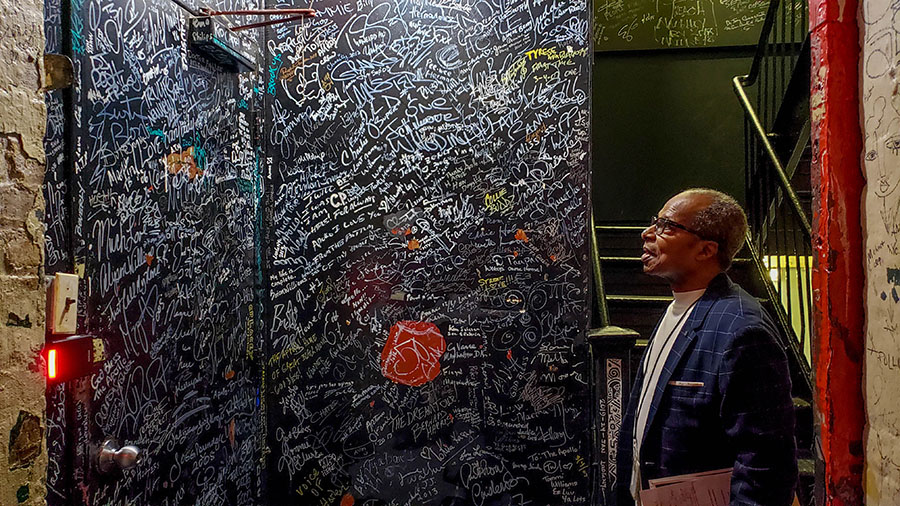
The Apollo’s Amateur Night also has international reach. In August 2019, the Apollo unveiled its “Amateur Night Japan 2019,” which received more than 1,000 video auditions. “It has always been a top priority for the theater to engage communities in international households,” Aldo Scrofani, the theater’s chief operating officer, said in a news release. “The production of Amateur Night at the Apollo in Japan and potentially the Asian market, solidifies our commitment to the cultivation of diverse audiences in Harlem and abroad, ultimately creating a place for music lovers around the world to call home.”
The Drama Builds

As the performers prepared to take the stage for the 2019 finale, which was being broadcast live on Facebook, questions swirled among the audience members. Would Lee reclaim the title? Or would it be one of the winners of the Amateur Night Japan 2019 who also had come to Harlem to perform at the Super Top Dog competition? They were there to win –again– just like Lee.
The Super Top Dog winner hasn’t always been local. Three Japanese performers and a young girl from the United Kingdom took past titles, according to Mitchell. Would there be the fifth? It was up to the audience to decide, an Amateur Night tradition. If people love a performer, they cheer in support. Otherwise they boo the contestant, summoning “the executioner,” C.P. Lacey, who tap dances out from the wings to hustle the booed performer off the stage.
That’s why, before starting their acts, performers rub the so-called Tree of Hope for good luck; the stump of a tree that once stood outside the old Lafayette Theater, it sits on stage atop a Greek-style column during each Amateur Night. Legend says unemployed entertainers used to rub the tree hoping they would get their dream job at the Lafayette. Mitchell said he remembers 9-year-old Michael Jackson caressing the Tree of Hope before performing in “Stars of Tomorrow,” the opening segment of Amateur Night that showcases children and teen talent.
Let the Show Begin
One of the Japanese acts, 544 6th Avenue, a group of four young men, took the stage wearing black and gray traditional clothes and bamboo hats. They stopped to rub the Tree of Hope and danced to the delight of the audience. Following some American performers, a Japanese girl wearing a red Kimono with flowers sang in English, prompting thunderous applause.
It was now Lee’s turn to rub the stump, hoping not to become the first performer of the night to get booed off the stage. After the first, “Pufffftt. Pufftftft. CH.CH. Tumm. Pumm,” Lee received an ovation from the crowd. Wearing blue jeans that hugged his skinny body and a black hoodie under a jean jacket, Lee emulated music sounds and electric beats. The audience was euphoric.
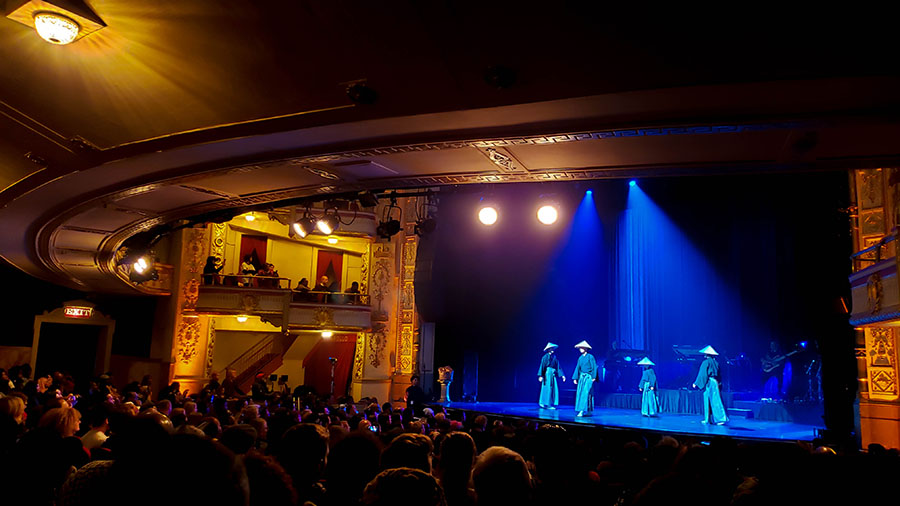
A Bright Future for the Apollo
“The Apollo is getting bigger,” said Mitchell, noting that some of the theater’s offices would soon be moving soon into a new 28-story building, the Victoria Tower, which is going up next door at the site of the old Victoria Theater. The Apollo will occupy two floors of what will be the tallest building in Harlem. The tower also will include the Renaissance Marriott Hotel and two small theaters that the Apollo will manage. A planned renovation project at the Apollo will include the addition of a café and a small restaurant in the lobby, he said. “It’s going to be bigger and better in the next couple years,” Mitchell said. “We’ve got to look to the future, long after I’m gone and everybody is gone. There’s going to be something new for the future for people to come and enjoy and bring all kinds of different cultures and have them perform on stage.”
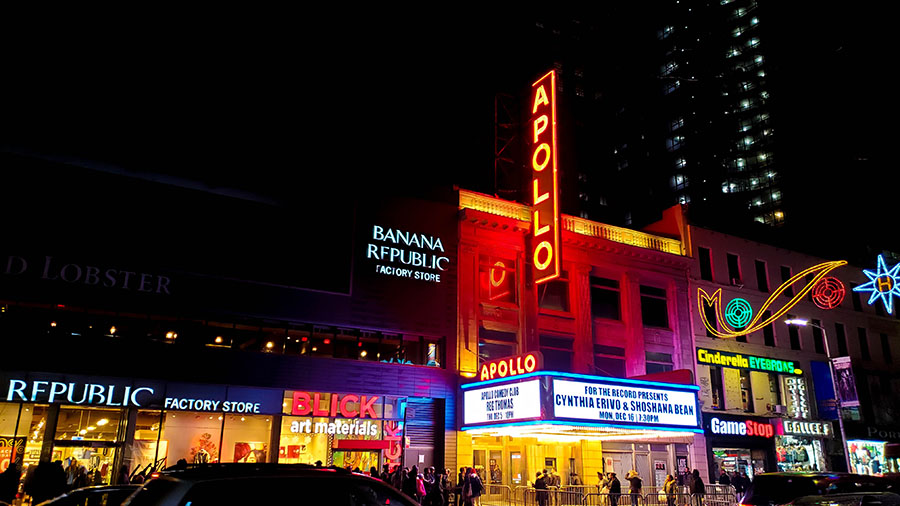
And the Winner Is….
The evening’s last contestant was Amateur Night Japan winner, Azumi Takahashi, a fragile-looking young woman covered in a long red-clay dress with black boots and a wide black belt. Once again, the cheers made the Apollo vibrate with appreciation. Now, the time had come for the audience to choose the 2019 Super Top Dog winner. A big screen over the stage, above the 10 performers, displayed a meter that would measure the loudest round of applause, which would lead to the naming of the champion.
After the first nine contestants were judged, it was clear that Lee had received the loudest response so far. Next to him stood Takahashi, the final one to be judged, looking timid and delicate. The audience would be the judge. They gave Takahashi the same score as Lee. Capone asked the public to break the tie.
The theater went crazy as the audience made its final decision. The meter read 98 out of 100. We have a winner. The ovation continued. The house glittered with camera flashes. Lee tried not to look at the meter. Takahashi covered her face with her hands. She could not believe that she had just become the fourth Japanese and the fifth non-American winner of Super Top Dog of Amateur Night at the Apollo 2019. A rain of confetti fell over the stage. The night was over.
